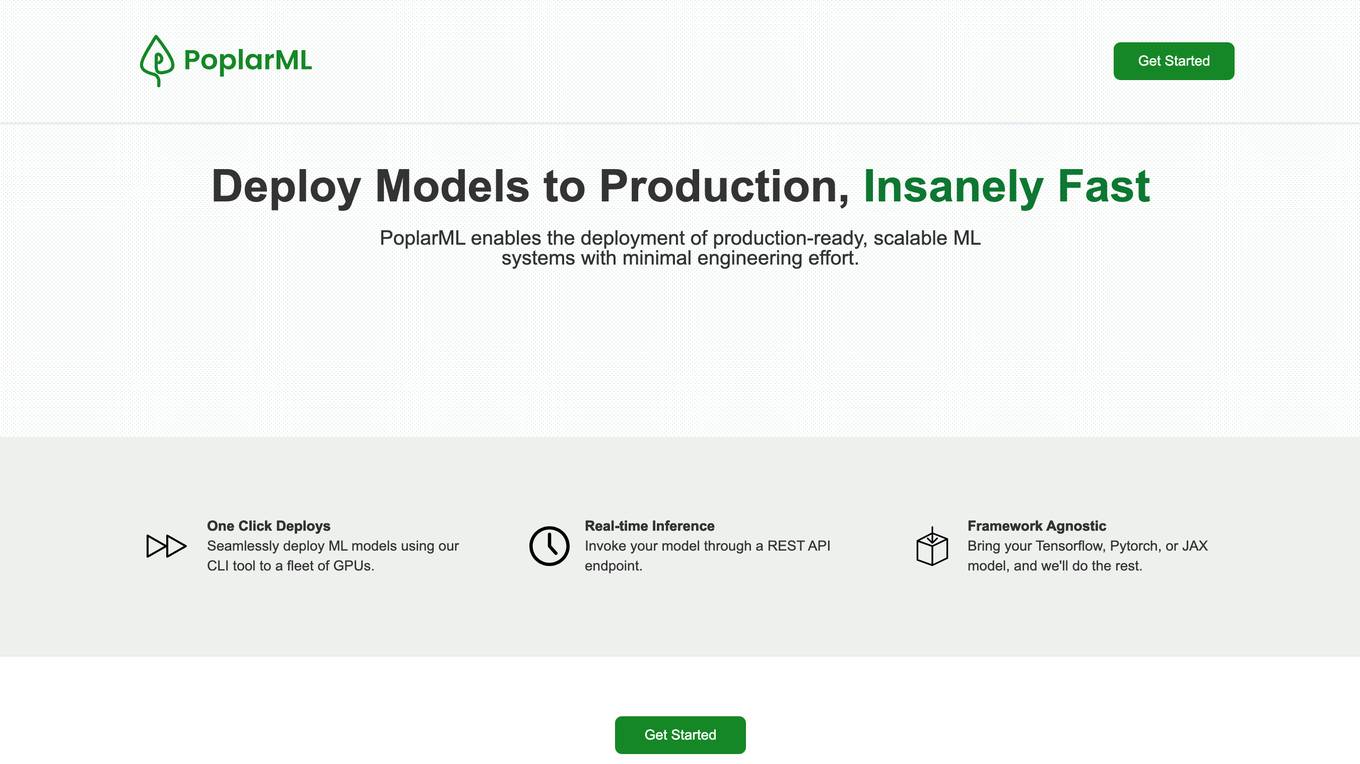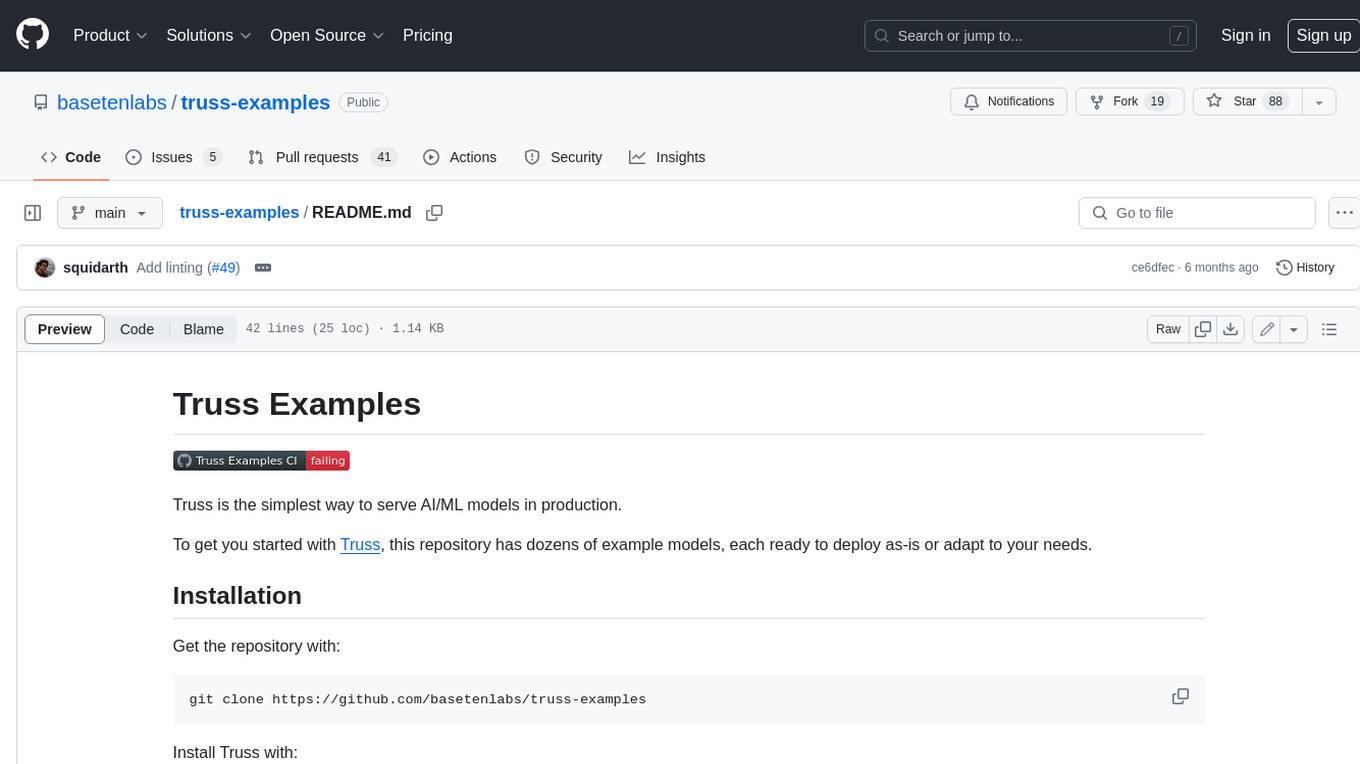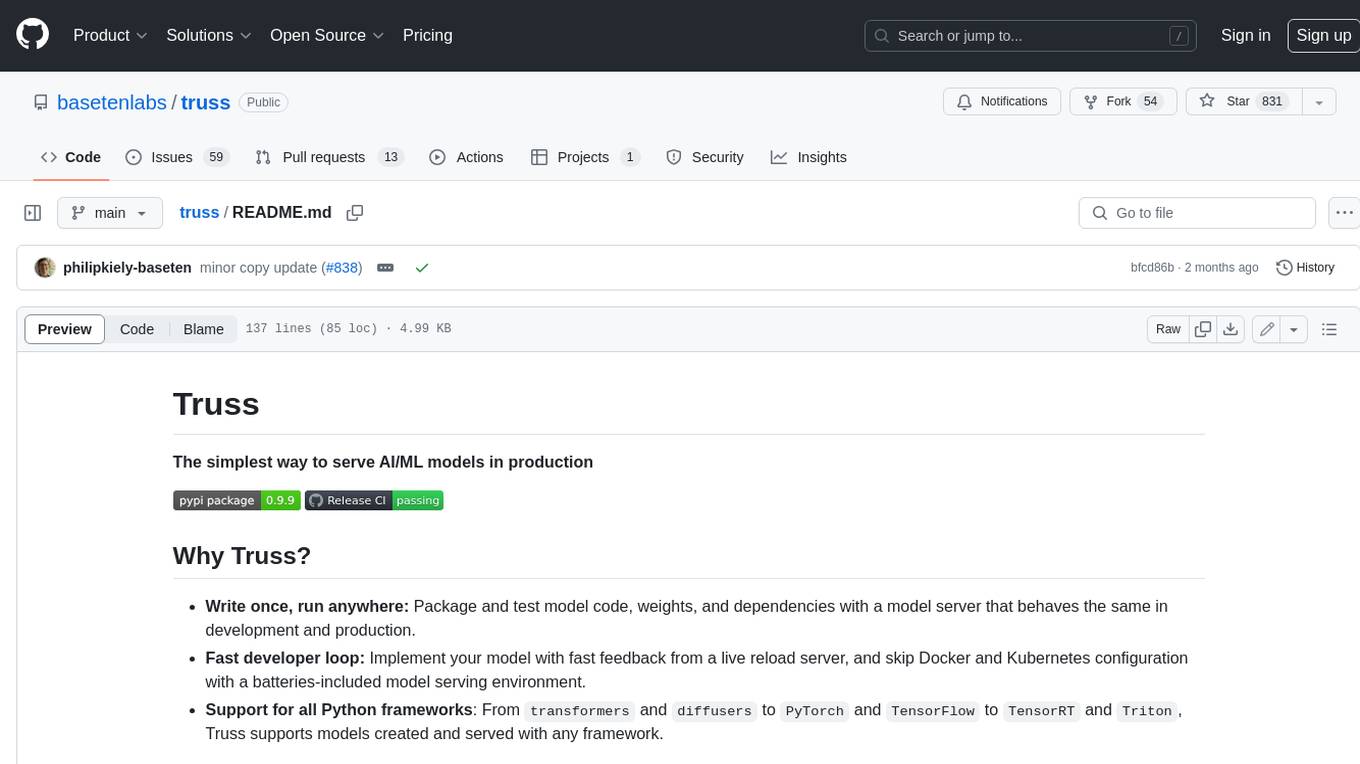Best AI tools for< Invoke Models >
1 - AI tool Sites

PoplarML
PoplarML is a platform that enables the deployment of production-ready, scalable ML systems with minimal engineering effort. It offers one-click deploys, real-time inference, and framework agnostic support. With PoplarML, users can seamlessly deploy ML models using a CLI tool to a fleet of GPUs and invoke their models through a REST API endpoint. The platform supports Tensorflow, Pytorch, and JAX models.
3 - Open Source AI Tools

truss-examples
Truss is the simplest way to serve AI/ML models in production. This repository provides dozens of example models, each ready to deploy as-is or adapt to your needs. To get started, clone the repository, install Truss, and pick a model to deploy by passing a path to that model. Truss will prompt you for an API Key, which can be obtained from the Baseten API keys page. Invocation depends on the model's input and output specifications. Refer to individual model READMEs for invocation details. Contributions of new models and improvements to existing models are welcome. See CONTRIBUTING.md for details.

truss
Truss is a tool that simplifies the process of serving AI/ML models in production. It provides a consistent and easy-to-use interface for packaging, testing, and deploying models, regardless of the framework they were created with. Truss also includes a live reload server for fast feedback during development, and a batteries-included model serving environment that eliminates the need for Docker and Kubernetes configuration.
guidance-for-a-multi-tenant-generative-ai-gateway-with-cost-and-usage-tracking-on-aws
This repository provides guidance on building a multi-tenant SaaS solution for accessing foundation models using Amazon Bedrock and Amazon SageMaker. It helps enterprise IT teams track usage and costs of foundation models, regulate access, and provide visibility to cost centers. The solution includes an API Gateway design pattern for standardization and governance, enabling loose coupling between model consumers and endpoint services. The CDK Stack deploys resources for private networking, API Gateway, Lambda functions, DynamoDB table, EventBridge, S3 buckets, and Cloudwatch logs.